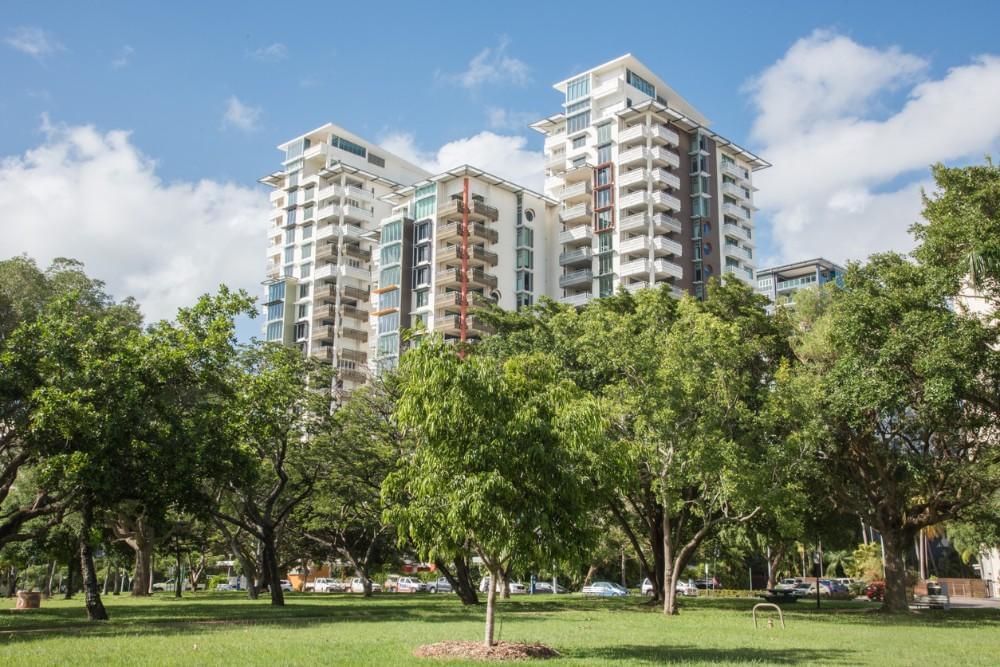At what point do you need to choose a conveyancer?
Katy has been writing and editing in the digital realm and in print for over ten years, and is based in Brisbane, Queensland.
Learn more about our editorial guidelines.
When you're buying or selling property, you may need to employ a conveyancer. A conveyancer is a licensed professional who knows real estate law.
What exactly does a conveyancer do? They can give you advice and information, prepare documentation and help you through the settlement process. A conveyancing lawyer may also be a solicitor, but it is not always required. However, a conveyancer must be licensed in the state or territory where you are buying or selling property.
What is conveyancing?
The legal process of buying or selling land is called "conveyancing." A conveyancer is a professional who understands the laws surrounding property sales. Most states recommend hiring a conveyancer as early as possible.
In New South Wales, Victoria and Tasmania, conveyancing is required before you put a house on the market. In Queensland and Western Australia, a conveyancer is required when you accept an offer.

What can a conveyancer do for you?
Conveyancers can do a number of things for you. They can:
- Prepare documentation and/or clarify documentation
- Research property and certificate of title
- Check for easements and other information you need
- Put your deposit into a trust account
- Calculate rates and taxes
- Conduct a property settlement
- Represent your interests with a real estate agent or vendor
That is a short list of the things a conveyancer can do for you. You may need a conveyancer to help you with other aspects of a sale or purchase. For example, other regulations apply to deceased estates.
While DIY conveyancing kits are available, if you do DIY conveyancing, you are still liable for any mistakes or oversights you make. Each state and territory has different requirements.
"While DIY conveyancing kits are the least expensive way to handle conveyancing, it is not recommended as property conveyancing laws are complicated and you will be held responsible for any mistakes you make."
DIY conveyancing is the least expensive way to handle conveyancing, but it is not recommended as property conveyancing laws are complicated and you will be held responsible for any mistakes made. In addition to this, you may not be able to purchase the same level of insurance that a licenced property conveyancer or solicitor can.
When looking for conveyancers, keep in mind that conveyancing fees can differ, so it's best to get quotes from several different conveyancers or property solicitors before you make your decision. Aside from learning the fees a conveyancer will charge for their services, you should also:
- Make sure they are licensed or registered in your state
- Find out if they have current professional indemnity insurance
- Check their references
When do you need to appoint a conveyancer?
If you're thinking about when to get a conveyancer, be aware that although you can hire a conveyancer at any time, most states recommend hiring a conveyancer before you begin the selling process. A conveyancer can do searches for you that may reveal something about your property you weren't aware of.
"If you're thinking about when to get a conveyancer, be aware that although you can hire a conveyancer at any time, most states recommend hiring a conveyancer before you begin the selling process."
The buyer has a right to know about easements and other matters. If these aren't revealed ahead of time, you could be legally liable for the oversight.
The following contains brief outlines of conveyancing laws and regulations for each state. When conveyancing is required at a specific time in your state, we have outlined this below. Please follow the links provided for more specific information about conveyancing in your region.
How do I find a conveyancer?
When you're selling or buying property, finding a trusted conveyancing expert is important. That is why we partner with LawLab, Australia’s leading national conveyancer. A nationwide law firm renowned for their in-depth legal experience in the property industry and delivering exceptional customer service.
LawLab offer a streamlined digital service that is designed with you in mind, to save you time, and reduce stress. You'll have transparent 24/7 access to documents, updates and messages - all delivered straight to your mobile device - and much more.
Get an instant no-obligation quote—OpenAgent customers receive 10 per cent off.
To find out how much property conveyancing costs, check out LawLab's instant quote tool.

Conveyancing law in New South Wales
Conveyancers in New South Wales must be licensed by NSW Fair Trading. In brief, there are three ways to do conveyancing in NSW:
- Hire a licensed conveyancer
- Hire a solicitor with experience in conveyancing
- DIY kits are available
The NSW conveyancing page outlines the work a conveyancer can do for you and gives you an indication of their fee structures. Different conveyancers will have different fee structures, so you may want to talk to several conveyancers or solicitors before you choose one.
The page also mentions the risks of DIY conveyancing: "You will still be personally liable if there is a problem with the sale even if you followed the instructions. You could encounter technical or legal issues not covered in the kit's material."
In NSW, as of December 1 2019, new laws have come into effect for all off-the-plan contracts that have been entered into from this date. Buyers now have better protection as vendors are required to include a disclosure statement, and they must also notify of “material peculiars”.
A 10-business-day cooling-off period has been introduced as well as stricter sunset clause protections, and more. If you're buying, a conveyancer will ensure the vendor meets these new legal obligations.

When do you need to appoint a conveyancer when you live in NSW?
In New South Wales, conveyancing is required in order to put your property on the market. For this reason, it would help the process run more smoothly if you have an idea of what conveyancer you would like to use by the time you start meeting and interviewing agents.
"In NSW, conveyancing is required in order to put your property on the market."
Most conveyancers advertise online. Type "conveyancer Sydney" (or your location) into the search engine and you will find several. Choose at least three and compare them before you settle on one.
Conveyancing law in Victoria
Conveyancers in Victoria are registered by Consumer Affairs Victoria. As in NSW, you can hire a conveyancer, a solicitor or use a DIY kit.
However, Consumer Affairs warns that using a DIY kit comes with risks, and states that all conveyancers in Victoria must have professional indemnity insurance. As a DIY conveyancer, you cannot get this insurance and will be liable for any mistakes you make.
To find a conveyancer, use your search engine. Type "conveyancer Melbourne" or your nearest major centre and you will find several. Email or call at least three and compare their prices and services.
When do you need to appoint a conveyancer when you live in Victoria?
If you live in Victoria, you must appoint a conveyancer as early as possible. If you find a conveyancer before you put your house on the market, they will be able to help you throughout the selling process. Finding a conveyancer ahead of time will also give you more time to choose a conveyancer who is right for you.
Conveyancing law in Queensland
In Queensland, solicitors handle conveyancing transactions. Some solicitors specialise in conveyancing while others handle conveyancing as part of their practise. DIY conveyancing is possible in Queensland, but the Queensland government recommends getting professional help even if you are doing DIY conveyancing.
"In Queensland, solicitors handle conveyancing transactions."
As in other states, you will be held liable for any mistakes you make. Although only solicitors handle conveyancing in Queensland, many solicitors specialise in conveyancing.
If you type "conveyancer Brisbane" (or another centre) into a search engine, you'll find conveyancers in your area. Choose three and compare them before you make your decision.

When do you need to appoint a conveyancer when you live in Queensland?
In Queensland, you don't need to appoint a conveyancer until you have accepted an offer. You may want to find a conveyancer earlier, however, as a conveyancer can help you avoid mistakes when you list your property.
Conveyancing law in South Australia
The South Australian government issues registration to conveyancers under the Conveyancers Act 1994. Solicitors do not need to be registered as conveyancers.
"As in other states, the South Australian government urges homebuyers and sellers to engage the services of a conveyancer when purchasing or selling a home"
As in other states, the South Australian government urges homebuyers and sellers to engage the services of a conveyancer or solicitor when purchasing or selling a home, "due to the complex legal nature of the work involved." The site recommends:
- Being aware of your rights and responsibilities
- Interviewing at least three conveyancers to find the right one for your circumstances
- Checking the public licensing register to be sure they are legally allowed to carry out conveyancing
- Checking the assurances register to find out if a person or business has had an assurance of an alleged breach
A solicitor or conveyancer in South Australia will list their business online. Type "conveyancer Adelaide" (or your city) into your preferred search engine and email or call at least three. Compare their fees and services and choose a conveyancer with a good reputation in your area.
When do you need to appoint a conveyancer when you live in South Australia?
You are not legally obligated to employ the help of a conveyancer or lawyer in South Australia. However, it is advised that you organise one early on in the selling process rather than waiting until contracts need to be signed. This ensures your complete understanding in the sale process and the documents and contracts that you sign.
Conveyancing law in Western Australia
In Western Australia, a conveyancer is known as a "Settlement Agent." They perform the same duties as a conveyancer and must have a Settlement Agent's licence. In order to become a Settlement Agent in WA, the applicant must complete a Diploma of Conveyancing and have a licence issued by the Department of Consumer Protection.
"In Western Australia, a conveyancer is known as a 'Settlement Agent'. They perform the same duties as a conveyancer and must have a Settlement Agent's licence."
Settlement agents must provide you with a Form 1 Appointment to act as Settlement Agent. You and the settlement agent will both need to sign the form to authorise the agent to act on your behalf.
In the case of an existing personal, financial or business relationship between the agent and the seller where there could be a potential conflict of interest, you must be given a Form 2 Disclosure notice to sign before Form 1.
Electronic conveyancing is now the standard settlement process in Western Australia, and in some cases paper lodgement will not be accepted. You can easily find conveyancers in WA. Use your preferred search engine and type "conveyancers Perth" or your city. Review their websites and contact at least three. That way you can compare their services and fee structures.

When do you need to appoint a conveyancer when you live in Western Australia?
In Western Australia, you are legally required to appoint a conveyancer after you have accepted an offer on your home. However, it's best practice for both buyers and sellers to employ the help of the settlement agent before this stage.
You can compare conveyancers and choose one that you feel can help you. You may also want to have them do searches to make sure your house is legally ready to sell. As mentioned above, DIY conveyancing can cost you money if you overlook an important point about your property and is not encouraged.
Conveyancing law in Tasmania
The Department of Justice issues licences to conveyancers in Tasmania. A conveyancer in Tasmania can be a solicitor or a licensed conveyancer. Aside from proving they have the necessary qualifications, conveyancers cannot be employed by a real estate agency or a mortgage broking firm.
"In Tasmania, a conveyancer must have at least two years experience working for a licensed conveyancer or solicitor before they can become an independent conveyancer."
In addition, a conveyancer must have at least two years experience working for a licensed conveyancer or solicitor before they can become an independent conveyancer. Conveyancing regulations are listed in detail on the Tasmanian government legislation website pages.
Conveyancers and solicitors who specialise in conveyancing advertise online. Type "conveyancers Hobart" (or your nearest city) into a search engine and you can compare conveyancer's websites. Contact three and choose the one you feel is best for you.
When do you need to appoint a conveyancer when you live in Tasmania?
Tasmania is one of three states that require a conveyancer in order to put a home on the market. You will benefit by interviewing at least three conveyancers before you list your home. You can compare their prices and services and choose a conveyancer who is a good fit for you.
Conveyancing law in the Northern Territory
The Agents Licensing Board of the Department of the Attorney-General and Justice issues licences to conveyancers in the Northern Territory. Solicitors can also do conveyancing in the NT and they must have professional indemnity insurance.
"It is possible to do your own conveyancing in the Northern Territory, however, the NT government warns that you will be held responsible for any costs involved, should you make a mistake."
The Conveyancing page of the NT government website goes into detail about when and why you should hire a conveyancer. It is possible to do your own conveyancing, however the NT government warns that you will be responsible for any costs involved, should you make a mistake. In addition to this, as an unlicensed person, you cannot get insurance.
Type "conveyancers Darwin" into a search engine and you will find several to choose from. Have a look at their websites and contact three. Choose the conveyancer you think will do the best job for you.

When do you need to appoint a conveyancer when you live in the Northern Territory?
There is no requirement in the Northern Territory for when you must use a conveyancer. However, it is recommended that you appoint one early on in the process to help you with all the legal in and outs.
Conveyancing law in the ACT
In the Australian Capital Territory, conveyancers must be solicitors or work in a solicitor's office as a conveyancer. While some firms may specialise in conveyancing, solicitors in general practise also do conveyancing. To be sure you're using a licensed professional, make sure your conveyancer is also a solicitor in the ACT.
PDFs are available on the ACT Legislation Register that cover all aspects of conveyancing. The legislation is complex and it is advisable to hire a solicitor with experience in conveyancing before transferring property.
Solicitors who specialise in conveyancing advertise their services online. Type "conveyancers Canberra" into your preferred search engine and review some of their websites. Contact three by email or phone to make a more careful comparison.
When do you need to appoint a conveyancer when you live in ACT?
There is no legal requirement for when to engage a conveyancer when buying or selling a house in the ACT. However, appointing a conveyancer or solicitor is highly recommended as they have the appropriate skills, knowledge and experience to guide you through the sale of your home.
"There is no legal requirement for when to engage a conveyancer in the ACT. However, appointing a conveyancer or solicitor is still highly recommended."
You can appoint a property solicitor at any time in the process before contract exchanges, but to be prepared and have the process go more smoothly, earlier is best.
How to choose a conveyancer

You have the right to choose your conveyancer according to the laws and regulations in your state or territory. While DIY conveyancing is possible, you should be aware that real estate law is complex. If you make a mistake, the costs could be higher than the cost of employing a conveyancer.
In general, a solicitor's fees may be only about $100 to $200 higher than a conveyancer's fees depending on the number of searches they need to do or the complexity of the project.
When you compare conveyancers in your area, don't rely solely on the information on their websites. Choose at least three and ask them:
- What their fee structure is
- If they are licensed in your state
- If they are solicitors in Queensland or the ACT
- If they can provide you with references
Conveyancers fees will vary. They will have set charges for searches and other services. You should ask for a list of their fees and find out what services you will require.
Rather than choose the least expensive conveyancer, choose one with a good reputation in your area. A good conveyancer will have years of experience and be as thorough as any property requires.
Conveyancing FAQ's
Do you need a conveyancer to buy land?
When purchasing land, one of the most important factors to consider is how you will use the land. Many issues affect land use and you’ll need to know exactly what you can do with the land you want to purchase. If you simply assume you can do what you like with the property, you might find yourself sorely disappointed. Questions to ask include:
- Do you have approval to build on the land?
- Is there an easement that will affect you?
- Are there covenants in place that restrict the way the land can be developed?
A conveyancing expert can help you avoid the pitfalls associated with buying land and investigate all these things for you to ensure you are legally able to use the land as you intend. This certainly makes for a more stress-free buying process.
Do I need a conveyancer before auction?
Before attending any property auction that you're serious about, you must have a copy of the contract of sale. This is where a conveyancer or solicitor comes into it. They will review the contract for you and explain any potential risks that come with buying the property, while also helping to negotiate changes to the contract with the vendor's lawyer before the day of auction.
This can include negotiating a longer settlement date, a reduced deposit amount or any other special conditions that will better suit you.
Do I need a conveyancer to buy a house?
Because a transfer of ownership is required when buying a house, it is still best to employ the help of a conveyancer when purchasing property. A conveyancer can help make the legal process of transferring ownership of a property a much smoother experience. They will ensure your title is clear of covenants, caveats and easements, as well as all the other legal legwork involved with buying a house, saving you a lot of time and stress.
Do you need a conveyancer before making an offer?
You do not have to employ a conveyancer before making an offer, but when asking yourself “do I need a conveyancer”, consider the benefits of having one from the beginning of your property hunt.
A good conveyancer can do much more for you than just go over the contract of sale. From calculating unpaid rates or land tax owing on the property to researching government records for future planned developments, there are many aspects they cover that will help you greatly in the long run.



